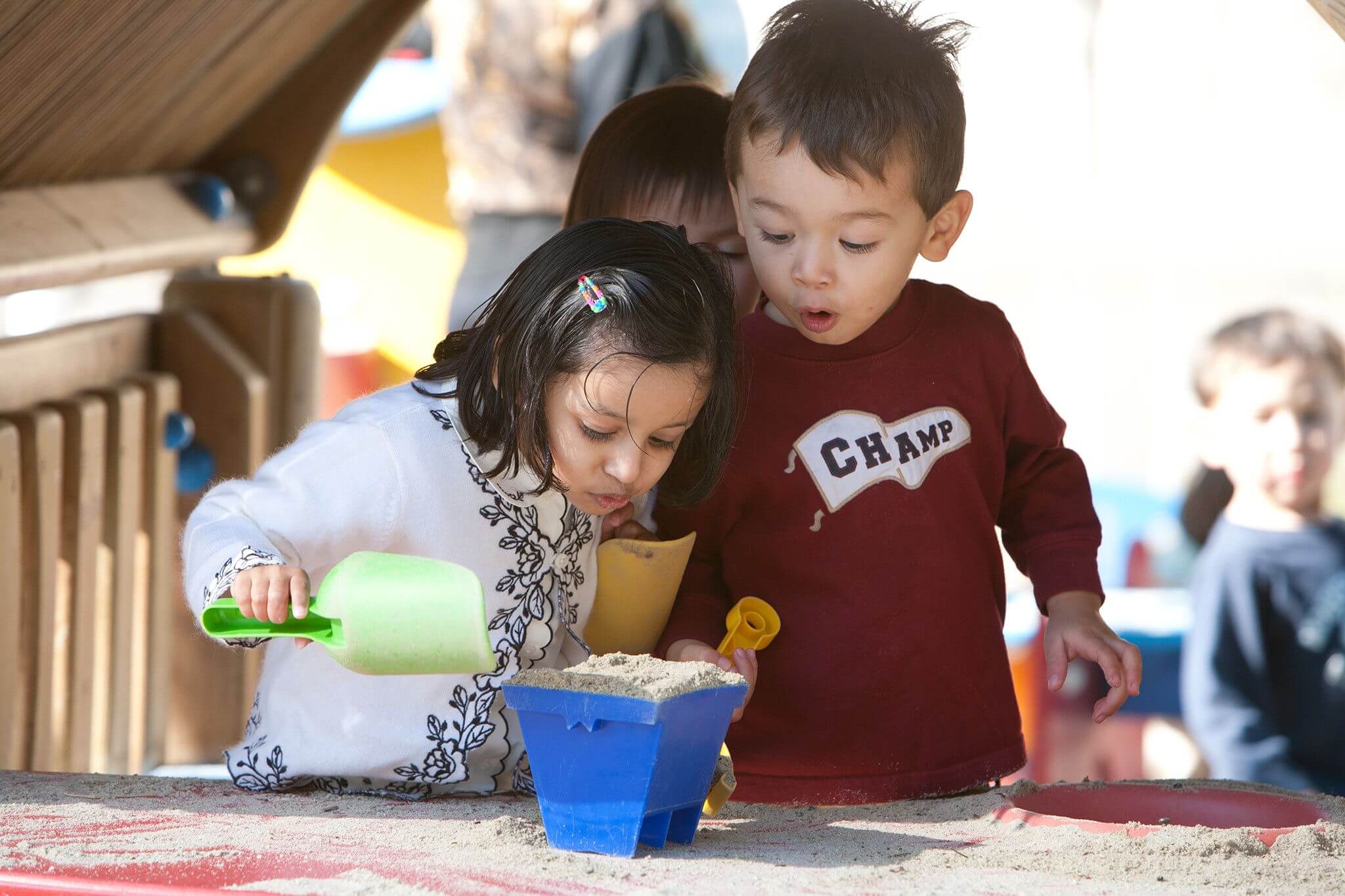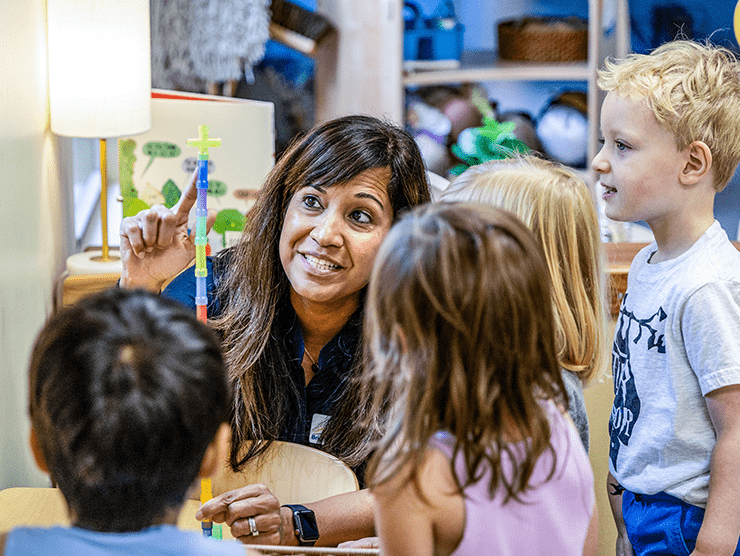If you’re a parent of a 3–4-year-old, chances are you’ve asked yourself: “should I find daycare for my 4-year-old?” The short answer is yes! High-quality daycare can offer 4-year-olds valuable social, emotional, and academic benefits. It helps prepare them for kindergarten and supports working families.
Whether you are returning to work, seeking social interaction with your child, or simply exploring the next step in their development, choosing daycare is a big decision—one that comes with many emotions. And remember, every family is different.
Benefits of daycare for 4-year-olds
Here’s a simple breakdown of the benefits of daycare for 4-year-olds in a preschool setting:
Social emotional learning
Research shows that learning thrives on secure, nurturing relationships. In a high-quality program, children can:
- Interact with their peers-- share, take turns, and resolve conflict.
- Recognize, label, and manage their emotions with guidance from caring educators.
- Develop empathy by recognizing and understanding another’s feelings.
- Gain independence and confidence as they navigate a world outside their home.
Cognitive, language, and physical development
High-quality programs offer developmentally appropriate,play-based learning that blends teacher-led and child-directed activities. These experiences build on preschoolers’ developing executive functioning skills. Children:
- Improve language and communication skills through storytelling, songs, and conversations.
- Develop early literacy and numeracy concepts introduced through play and structured activities.
- Strengthen critical thinking and problem-solving through exploration and inquiry-based learning.
- Build and reinforce gross motor skills such as running, jumping, and climbing and fine motor skills such as drawing and manipulating small objects.
Structured routine
Preschool programs help children adapt to daily schedules. Preschoolers can manage more change than their infant/toddler counterparts, and still thrive on consistent, yet flexible routines help children:
- Feel secure and understand expectations which reduces anxiety and behavioral challenges.
- Build time management and self-regulation skills, essential for future success.
- Transition more smoothly into kindergarten and formal school settings.
Future readiness development
Being ready for school means being ready for life. Educational instruction of young children should focus on critical skills outside of content including:
- Attention span, listening skills, and the ability to follow instructions.
- Learning how to learn through fostering curiosity, persistence, and motivation.
- Familiarity with school settings, reducing anxiety and increasing comfort with future educational environments.
- Creativity and imagination.
Family partnerships
Families play a critical role in determining the best care and education for their children. In addition to the benefits for your child, enrolling them in a preschool program can give families time for work and/or other personal responsibilities while being a built-in support system. Preschool programs:
- Provide family support and resources such as parenting tips and developmental screenings.
- Create opportunities for involvement, like volunteering and participating in school events.
- Provide a safe and enriching environment for children so parents can manage other responsibilities.
How to choose the right daycare
With benefits also comes considerations to keep in mind as you navigate the journey of finding daycare for your 4-year-old.
- Full time vs. part-time care: Does your family need full-time coverage? Depending on your needs, your child’s readiness and temperament, full-time care may be the way to go. If you are unsure and can do so, start part-time and partner with your provider to adjust the daycare schedule for your 3-4-year-old as you progress.
- Separation worries: It is normal for both children and parents to feel anxious at first, and it may take time for your child, and you, to adjust. Look for preschool programs that offer gradual drop-offs, or short initial days. Talk openly with your child about what to expect and establish routines to ease transitions.
- Cost: High-quality childcare isa financial commitment. Costs can vary widely based on location, program hours, and facilities. Be sure to take into consideration any extra fees including snack/lunch, supplies, etc. Many programs offer financial aid or government assistance and can provide additional support should your family need it.
- Illnesses: More children together = more germs– which is why preschool often comes with frequent minor illnesses, especially in the first year. Check in with your school to understand how they manage fevers, coughs, and return-to-school policy. Stock up on immune-boosting foods and be prepared to miss an occasional workday.
- Schedule constraints: Do the hours of operation align with your work and/or family needs? How many holidays will there be? Are there extended day options? Build flexibility into your daycare schedule and arrange backup care for unexpected closures or sick days.
There’s no one-size-fits-all answer
Sending your child to preschool is a big decision with emotional, logistical, and financial aspects. By weighing your family’s needs and asking the right questions, you can find a program that supports your child’s growth while fitting into your lifestyle. There is no right or wrong answer to the question, ‘should I send my child to daycare?’ Trust your instincts, your child’s needs, and what works best for your family.
Ready to take the next step in your child’s learning journey?
Discover how Bright Horizons can support your 4-year-old’s growth with a play-based, research-informed preschool experience. Our programs are designed to nurture confidence, curiosity, and connection—helping your child thrive today and prepare for tomorrow.
Find the right early childhood education program for your family here.





.ashx?as=1)